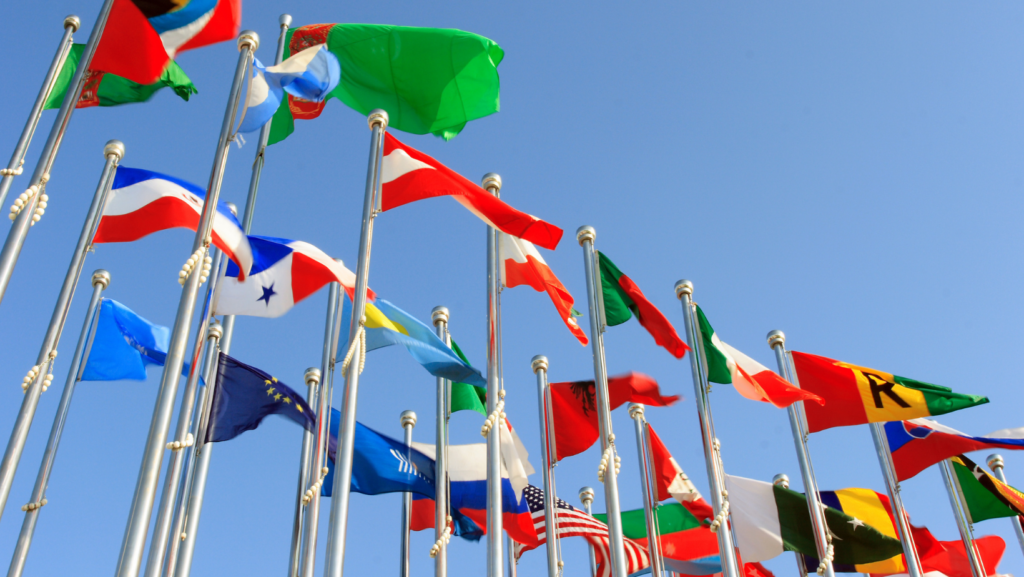In a world that’s shrinking by the day, cultural differences between countries continue to intrigue and surprise us. These differences, often seen as barriers, actually enrich our understanding of humanity and broaden our horizons.
This article delves into the fascinating world of cultural nuances, highlighting the unique customs, traditions, and social norms that define nations. From the collective spirit of Japan to the individualistic ethos of the United States, it’s a journey through diverse landscapes of human expression and interaction.
So, let’s embark on this enlightening journey, exploring the colorful tapestry of global cultures, and discover what sets us apart, yet brings us together.
Cultural Differences Between Countries
Building further on cultural differences between countries, let’s delve into the distinguishing traits of Eastern and Western cultures.
Eastern Cultures: Unity in Diversity
 Eastern cultures, made up of countries in Asia for example, highly regard principles of harmony, respect, and humility. They place a premium on group harmony, often resulting in a communal orientation. Take China, characterized by collectivism; it emphasizes community bonds and kinship. Likewise, Japan embraces Wa, or peace and harmony, fostering an environment where consensus is favoured.
Eastern cultures, made up of countries in Asia for example, highly regard principles of harmony, respect, and humility. They place a premium on group harmony, often resulting in a communal orientation. Take China, characterized by collectivism; it emphasizes community bonds and kinship. Likewise, Japan embraces Wa, or peace and harmony, fostering an environment where consensus is favoured.
Moreover, Eastern cultures often exhibit reverence for authority. In Confucian societies, such as Korea, respect is mandatory towards people in positions of authority, elders, and parents. In these cultures, relationships have an essential role, often dictated by defined social hierarchies.
Furthermore, spirituality remains a key component. For instance, Buddhism prevails across cultures like Myanmar and Bhutan, emphasizing a holistic approach to life and interconnectedness within the universe.
Western Cultures: The Search for Individuality
On the other hand, Western cultures, predominant in North America and Europe, showcase a strong inclination towards individualism. Herein, self-reliance, freedom, and personal independence become paramount. For instance, American culture exemplifies this, fostering individual rights, independence, and self-expression.
Moreover, unlike the broad societal hierarchies in Eastern societies, Western cultures tend to prioritize equality more decidedly. Scandinavian countries like Sweden and Denmark are epitomes of the importance given to egalitarianism and equality of opportunity.
Also, Western cultures typically lean more towards empirical thinking and evidence-based reasoning. For instance, in science-dominated societies like the United Kingdom, problem-solving often draws from logical and scientific principles.
Effects of Globalization on Cultural Differences
Globalization has proven a powerful force shaping societies worldwide, punctuating both the preservation and modification of tradition and cultural values.
Impact on Tradition and Cultural Values
 Globalization often ushers in a melding of traditions and cultural norms. With the cross-cultural interaction often brought about by globalization, local customs can intertwine with foreign ones. For example, many Western holidays like Christmas and Valentine’s Day are celebrated in various corners of the globe, even in non-Christian countries. This can lead to the evolution or even erosion of traditional values and customs. In some cases, communities might resist these changes, safeguarding their unique traditions and cultural values amidst the growing homogenization triggered by globalization. Hence, globalization can lead to a cultural convergence, while simultaneously prompting efforts towards cultural preservation.
Globalization often ushers in a melding of traditions and cultural norms. With the cross-cultural interaction often brought about by globalization, local customs can intertwine with foreign ones. For example, many Western holidays like Christmas and Valentine’s Day are celebrated in various corners of the globe, even in non-Christian countries. This can lead to the evolution or even erosion of traditional values and customs. In some cases, communities might resist these changes, safeguarding their unique traditions and cultural values amidst the growing homogenization triggered by globalization. Hence, globalization can lead to a cultural convergence, while simultaneously prompting efforts towards cultural preservation.
Simultaneously, globalization stimulates a universal acceptance of human rights, often challenging oppressive traditional norms. For instance, ideas about gender equality and LGBT rights, mainly western ideologies, are gaining recognition globally, challenging and transforming longstanding cultural norms and value systems.
Bridges and Barriers in Cultural Communication
Bridging differing cultural differences between countries plays a crucial part in fostering global unity, while barriers, such as stereotypes and prejudices, can impede mutual understanding. Let’s delve into these potential blockages and how they impact cultural perceptions.
Stereotypes and Prejudices in Cultural Perceptions
 While stereotypes, commonly oversimplified ideas about a particular group, regularly impede effective intercultural communication, they’re also co-existing barriers with prejudices. For instance, the proposition that all Americans are outgoing or each Chinese individual values community over individuality hampers accurate perceptions.
While stereotypes, commonly oversimplified ideas about a particular group, regularly impede effective intercultural communication, they’re also co-existing barriers with prejudices. For instance, the proposition that all Americans are outgoing or each Chinese individual values community over individuality hampers accurate perceptions.
Prejudices, likewise, catalyze miscommunication. Indeed, a blanket assumption, such as believing every Middle Eastern person approves of oppressive regimes, underlines prejudice’s negative role in intercultural communication. Evidently, these subjective biases discourage objective views of different cultures, thus erecting barriers in global understanding.

